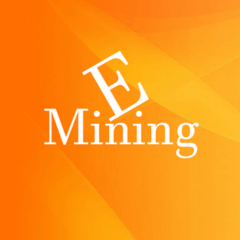E-Mining is a BTC cloud mining application. It allows users to mine Bitcoin without expensive hardware or technical knowledge. The app provides a simple, interface. It allows users to mine Bitcoin by purchasing mining contracts with a few clicks.
What Is E-Mining
E-mining is the process of recovering some of these precious metals.
We generate 125,000 commercial airplanes worth of e-waste every year.
How many phones have you had since you got to school – is it two, three, or even more? It is around those numbers. You feel great when you get a new smartphone. After you are done with it, you have to find somewhere for your old one to go. This unintended outcome has led to a rapid growth of electronic and electrical waste, also known as e-waste.
E-waste is now the fastest-growing waste stream in the world. Some forms are growing. The United Nations calls it a tsunami of e-waste. This waste stream reached 48.5 million tonnes in 2018. If left unchecked, it could more than double to 120 million tonnes by 2050.
It’s hard to imagine 50 million tonnes. This is equal to 125,000 commercial airliners or 4,500 Eiffel Towers. It’s enough to cover an area the size of Vatican 150 times over. And that’s one year’s worth of the e-waste we create.
There is 100 times more gold in a tonne of mobile phones than in a tonne of gold ore
Over the years, technology has revolutionized our world. At the same time, the increased demand for electronic devices has created the world’s fastest-growing waste stream: e-waste. Our love of devices fuels an overwhelming flood of screens, cables, chips, and motherboards. They connect many of them to the internet. Last year, the number of smartphones surpassed the number of people on Earth. Experts project that the number of devices will grow to 25-50 billion by 2020. This reflects decreasing costs and increasing demand.
While more electronic devices are part of the problem, they also can be a big part of the solution. Smartphones are pocket-sized mines of precious metals and rare earth elements. Experts estimate that a typical iPhone contains approximately 0.034g of gold, 0.34g of silver, and 0.015g of palladium. It also contains less than 0.001g of platinum. It also contains less valuable but still significant aluminium (25g) and around 15g of copper.
And that’s the start. Smartphones also contain a range of rare earth elements. These elements are abundant in the Earth’s crust. But, they’re difficult to mine and extract. They include scandium, yttrium, and elements 57–71. Then there is the plastic, the glass, and the battery.
Where to start
Everyone seems to agree that the amount of waste that is not recycled is a terrible thing. People burn it or it ends up in landfills. Aside from the possible leakage of dangerous substances, it forms an environmental and health hazard. You will run out of resources. Elements that are now processed as if they would never run out someday actually will run out. Imagine large-scale manufacturing, medical devices, transportation, and information technology. They all depend on these resources. Many other industries could suffer severe damage. Our way of life would stop to exist and ways to move forward would be very limited. A circular economy seems to buy us a ticket out of the mess but it must have its shortcomings, or at least difficulties. If it did not, we would be busy implementing.



